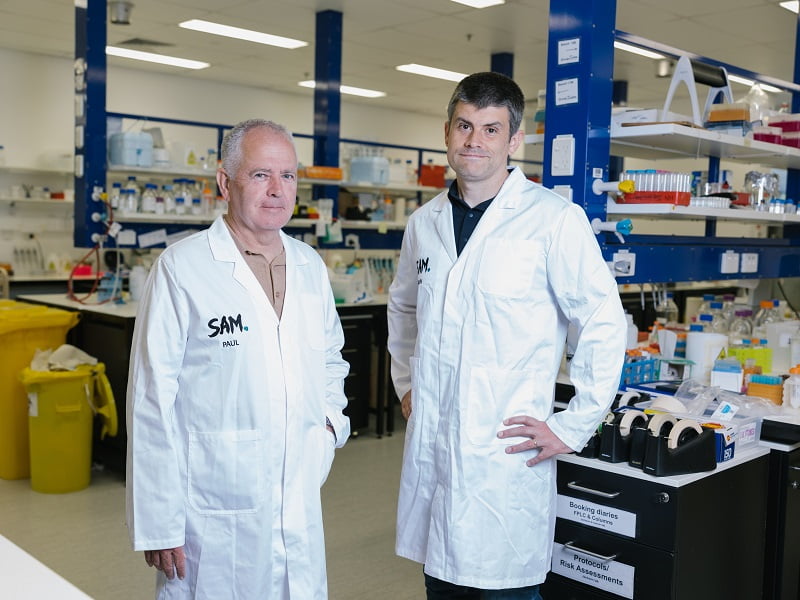Samsara Eco, an Aussie startup that uses plastic-eating enzyme to make recycled packaging, has teamed up with Canadian activewear brand Lululemon to create what it says is the world’s first infinitely recycled textiles.
Lululemon will in turn take a minority investment in Samara Eco as part of the “multi-year collaboration”, the value of which has not been disclosed. It is the Nasdaq-listed company’s first minority investment in a recycling company.
The tie-up follows Samsara Eco’s $54 million Series A funding round last year which the company plans to use to build its first plastic recycling facility in Melbourne.
The startup also secured a $2.56 million grant as part of the federal government’s cooperative research centre projects program earlier this year, and $568,491 from the Advanced Manufacturing Growth Centre’s Commercialisation Fund in 2021.

Sydney-based Samsara Eco was launched in September 2021 as a partnership between the ANU and CSIRO’s Main Sequence Ventures with the aim of solving the planet’s plastic crisis through infinite recycling.
The startup has developed a plastic-eating enzyme that can break plastic back down to its core molecules, which can then be used by manufacturers to make brand new items, effectively creating an infinite recycling loop.
The technology saw Samsara Eco take out the top gong at the InnovationAus 2022 Awards for Excellence.
The new partnership with Lululemon, announced on Friday, will see Samsara Eco create the world’s first infinitely recycled nylon and polyester, which make up around 60 per cent of clothing produced today.
By creating recycled nylon and polyester from apparel waste, the companies are seeking to bring “scale circularity” to textile-to-textile recycling and, ultimately, reduce textile waste, according to the enviro-tech startup.
According to research cited by the startup, around 87 per cent of discarded textiles either end up in landfill, incinerated or otherwise leak into the environment when 90 per cent of this is reusable and recyclable.
Australia is the second highest consumer of textiles in the world per person, according to an Australian Fashion Council report produced by E&Y, with 93 per cent of the textiles ultimately disposed in landfill.
The average Australia reportedly buys 14.8kg of clothing – or 56 new items – every year. Roughly 10kg of this clothing reaches landfill each year, according to another report from the federal government-funded council.
Samsara Eco chief executive and founder Paul Riley described the partnership as a “massive milestone” for the company, and would disrupt the apparel industry by providing a solution to textile waste.
“The ability to infinitely recycle textiles, including nylon, is an essential solution to tackle the enormous challenge of textile waste in the apparel industry,” Mr Riley said, adding that the partnership will accelerate “textile-to-textile recycling towards truly circular apparel”.
Lululemon vice president of raw materials innovation, Yogendra Dandapure, said that by “advancing transforming apparel waste into high-quality nylon and polyester, the would help the company “live our end-to-end vision of circularity”.
“Nylon remains our biggest opportunity to achieve our 2030 sustainable product goals. This partnership demonstrates what’s possible through collective innovation to solve unmet needs,” he said.
Do you know more? Contact James Riley via Email.

